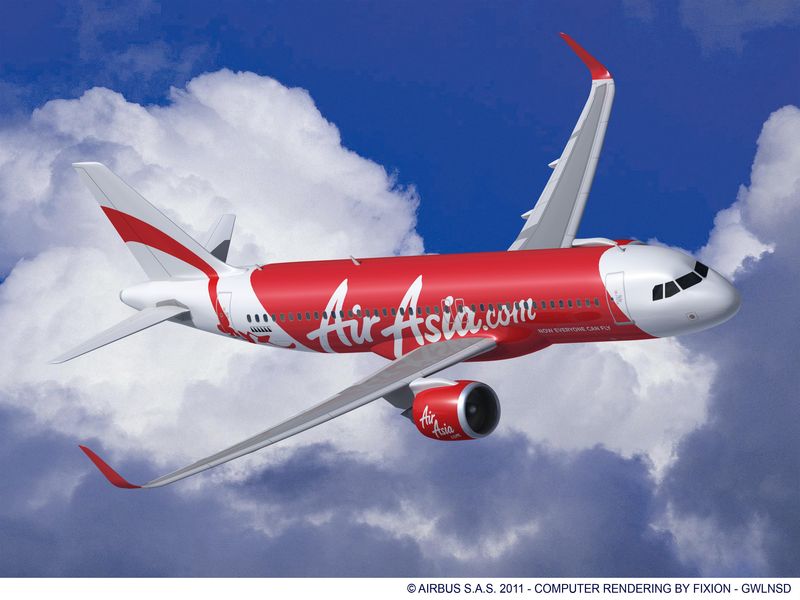Airbus is celebrating a pre-Christmas boost with the confirmation of a 100-aircraft, £5.8bn order from fast-growing airline AirAsia for its A320 plane, including a new version re-engineered at its Filton, Bristol, plant.
The deal was welcomed by Prime Minister David Cameron on a visit to Filton’s sister plant at Broughton, near Chester, who said it would safeguard 9,000 manufacturing jobs, including 1,500 at Airbus itself.
“This is excellent news and a tremendous boost for the workforce and for UK manufacturing,” said Mr Cameron.
Wings for all Airbus planes are designed by engineers at Filton, where Airbus employs around 4,000 people. Over the past couple of years teams of Filton engineers have worked on the A320neo (new engine option) – a new version of the budget airline workhorse which has innovative ‘sharklets’ that make the aircraft one of the most fuel-efficient on the market.
The deal also boosts UK engineering giant GKN’s plant at Filton which part-builds the A320 wings although, in a move that could shape the future of Airbus deals featuring Asian airlines, some wing parts will be built at the European firm’s plant in China.
AirAsia, owned by entrepreneur Tony Fernandes – often called the Asian Richard Branson – has ordered 64 A320neo jets and 36 current-generation A320s. The deal comes on top of 375 similar planes already ordered by the airline, Asia’s largest low-cost carrier.
The deal is worth £5.8bn at list prices but in practice aircraft are sold at significant discounts.
Airbus chief executive Fabrice Bregier said the high-profile deal came following heavy investment at a research centre at Filton and at Broughton.
The order had already been included in the Airbus books without the name of the buyer being identified, meaning yesterday’s event was mainly a ceremonial one to promote the airline and the impact of aerospace on the British economy.
Despite the new order, Airbus is expected to fall behind rival Boeing (BA.N) in the race for new business this year.
During a question-and-answer session with workers at Broughton, Mr Cameron was asked about the planned deal between Airbus owner EADS and BAE which failed after the German government refused to endorse it.
The UK government had backed the mega-merger. The Prime Minister said: “We weren’t the ones putting barriers and hurdles in the way. It was a sign of how positively engaged and committed the UK government is to this company.”
Politicians had feared that the UK would lose work on Airbus aircraft to other nations which co-own it, mainly France and Germany.
These fears intensified after it emerged that the UK would get a 15% share of the work on the yet-to-fly widebody A350 – a reduction on the 20% level on existing aircraft programmes.































